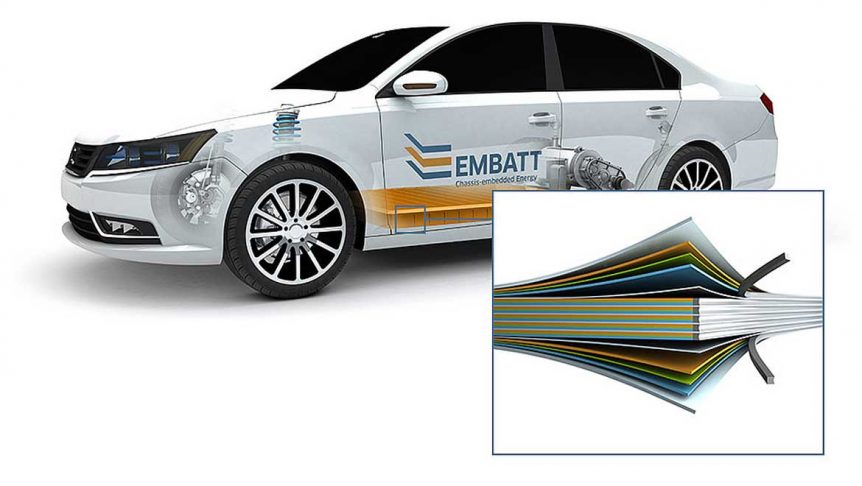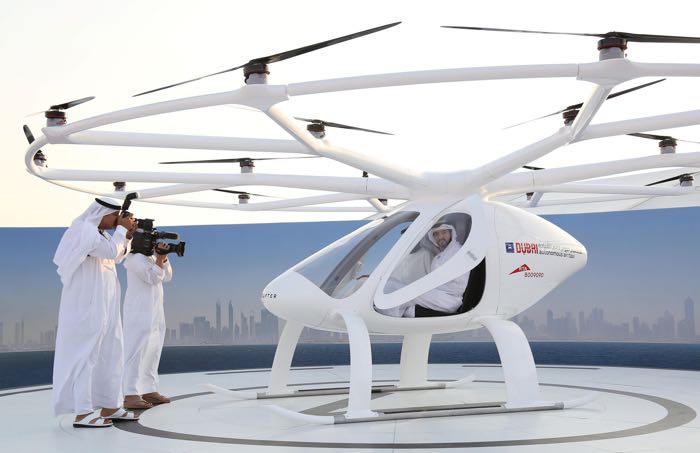No, it’s not the discovery of an unknown Richard Lester film*, but the impending prototype manufacturing collaboration for a battery that promises 450 Watt-hours per liter. Four heavy-hitters in German industry plan on making (fabricating) the flat-panel EMBATT battery into a reality – with all speed. thyssenkrupp System Engineering GmbH, IAV GmbH, Daimler AG, and Fraunhofer IKTS (Institute for Ceramic Technologies and Systems) have teamed up for the “EMBATT-goes-FAB” project sponsored by the Federal Ministry for Economic Affairs and Energy. thyssenkrupp specializes in planning, designing and implementing production lines for cylindrical, pouch, and prismatic batteries, and will apply that expertise to the new format. IAV provides engineering and consulting services to auto makers worldwide, and has a depth of knowledge in battery development. Daimler, of course, would have testbeds ready in car or truck size, and would have a vested interest in seeing batteries that can promise 1,000 kilometer (620 mile) range for their vehicles. Fraunhofer explains the relevant technology …
Volocopter Starts Autonomous Air Service Trials in Dubai
In June, Dubai’s Road and Transit Authority (RTA) announced its plans to test fly Volocopter’s 200 over the country by the last quarter of this year. The government and Volocopter have succeeded in meeting that timeline, with demonstrations this week of Volocopter’s quiet ability to fly autonomously (although without passengers so far). Aerial transit will be a small part of a much broader scheme, the government intent on providing excellent public transportation, as shown in this well-produced video. To ensure meeting Dubai’s ambitious goal, Volocopter’s designers tested the machine thoroughly in German skies. Note the Grob Strato 2C by one of the hangars, the twin-engined airplane in which Einar Enevoldson, founder of the Perlan Project, set the still extant world altitude record for propeller-driven airplanes in 1995 – 60.897 feet. With fresh infusions of 25 million euros from Daimler AG and “serial entrepreneur” Lukasz Gadowski, Volocopter has been able to achieve this early trial as a sky taxi. Both Volocopter …
Battery Prices and Lithium Futures
EV World has a weekly email update to which your editor subscribes. Because they provide a collection of articles and opinions from different sources, one often comes away questioning trends and even facts – or sometimes the meaning of it all. This week, an article referenced from Green Car Reports says that EV batteries may already have fallen to $250 per kilowatt hour. This would be a godsend for sales of battery-powered cars, because sticker prices would drop sharply. The article quotes Wolfgang Bernhart, a partner at Rolan Berger Strategy Consultants, that battery prices are already much lower than previous predictions would have indicated, possibly as low as $250 per kilowatt hour. His analysis credited economies of scale for this drop, which is based on 2015 demand. This paradoxical approach notes that battery manufacturers must begin planning production now for 2015 EVs, with prices quoted to those manufacturers based on that future demand. Such prices would be an optimistic five …


